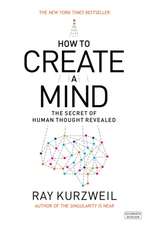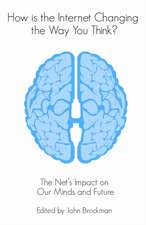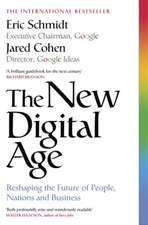The Technological Fix: How People Use Technology to Create and Solve Problems: Hagley Perspectives on Business and Culture
Editat de Lisa Rosneren Limba Engleză Hardback – 11 aug 2004
| Toate formatele și edițiile | Preț | Express |
|---|---|---|
| Paperback (1) | 371.72 lei 6-8 săpt. | |
| Taylor & Francis – 9 aug 2004 | 371.72 lei 6-8 săpt. | |
| Hardback (1) | 1007.48 lei 6-8 săpt. | |
| Taylor & Francis – 11 aug 2004 | 1007.48 lei 6-8 săpt. |
Preț: 1007.48 lei
Preț vechi: 1228.63 lei
-18% Nou
Puncte Express: 1511
Preț estimativ în valută:
192.84€ • 209.54$ • 162.09£
192.84€ • 209.54$ • 162.09£
Carte tipărită la comandă
Livrare economică 21 aprilie-05 mai
Preluare comenzi: 021 569.72.76
Specificații
ISBN-13: 9780415947107
ISBN-10: 0415947103
Pagini: 272
Ilustrații: 16 b/w images and 12 halftones
Dimensiuni: 152 x 229 x 20 mm
Greutate: 0.66 kg
Ediția:1
Editura: Taylor & Francis
Colecția Routledge
Seria Hagley Perspectives on Business and Culture
Locul publicării:Oxford, United Kingdom
ISBN-10: 0415947103
Pagini: 272
Ilustrații: 16 b/w images and 12 halftones
Dimensiuni: 152 x 229 x 20 mm
Greutate: 0.66 kg
Ediția:1
Editura: Taylor & Francis
Colecția Routledge
Seria Hagley Perspectives on Business and Culture
Locul publicării:Oxford, United Kingdom
Notă biografică
Lisa Rosner is Professor of History at Richard Stockton College. A specialist in the history of science, technology, and medicine, she is the consulting editor of The Chronology of Science from Stonehenge to the Human Genome Project.
Cuprins
Introduction: The Technological Fix, Lisa Rosner Section One: Fixing Bodies 1. Artificial Hearts - A Technological Fix More Monstrous Than Miraculous, Shelley McKellar 2. Plugging in to Modernity: Wilshire's I-ON-A-CO and the Psychic Fix, Carolyn Thomas de la Peña 3. Technology and Disability, Jim Tobias Section Two: Fixing Food 4. The Nutritional Enrichment of Flour and Bread: Technological Fix or Half-Baked Solution, Michael Ackerman 5. Long-Haul Trucking and the Technopolitics of Industrial Agriculture, 1945-1975, Shane Hamilton 6. Synthetic Arcadias: Dreams of Meal Pills, Air Food, and Algae Burgers, Warren Belasco Section Three: Fixing the Environment 7. When Everybody Wins Does the Environment Lose? The Environmental Techno-Fix in Twentieth Century American Mining, Timothy J. LeCain 8. Solving Air Pollution Problems Once and For All: The Potential and the Limits of Technological Fixes, Frank UeKoetter 9. Fixing the Weather and Climate: Military and Civilian Schemes for Cloud Seeding and Climate Engineering, James R. Fleming 10. The Problem of Computer-Computer Communication, 1995-2000: ATechnological Fix?, Paul E. Ceruzzi 11. Innovation Junctions: Office Technologies in the Netherlands, 1880-1980, Onno de Wit, Jan Van den Ende, Johan Schot and Ellen van Oost Afterword, Thomas P. Hughes
Descriere
The term "technological fix" should mean a fix provided by technology--a solution for all of our problems, from medicine and food production to the environment and business. Instead, technological fix has come to mean a cheap, quick fix using inappropriate technology that usually creates more problems than it solves. This collection sets out the distinction between a technological fix and a true technological solution.<br><br>Bringing together scholars from a variety of disciplines, the essays trace the technological fix as it has appeared throughout the twentieth century. Addressing such "fixes" as artificial hearts, industrial agriculture and climate engineering, these essays examine our need to turn to technology for solutions to all of our problems.























